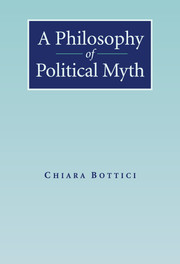7 - Myth and the Critique of Political Reason
Published online by Cambridge University Press: 24 July 2009
Summary
The aim of Bayle's Various Thoughts on the Occasion of a Comet (2000) was to undermine the influence of superstition in politics. To this end, by criticising the view of comets as presages of misfortune, he made his notorious claim that a decent society of atheists is possible: sound political life does not require religious beliefs and it might even be harmed by them. This claim, revolutionary for his epoch, was advanced with every precaution possible, and the book was first published anonymously.
According to Bayle, when events are reduced to their natural causes, they no longer warn us of anything, and this deprives the people of an infinite number of “vain imaginings”, the diviners of a considerable part of their employment, and the statesmen of the possibility of taking advantage of these events (Bayle 2000: 141). Statesmen have fomented these beliefs in all times because, as Bayle clearly states, “nothing is as powerful as superstition for keeping the populace in check. However unruly and inconstant they may be, if their minds are once struck by a vain image of religion, they will obey the diviners better than their chiefs” (Bayle 2000: 99).
The strategy adopted to undermine the role of superstition in politics is thus twofold. First, Bayle argues that the beliefs in presages are ill-founded because, if we analyse the phenomenon of comets with an “altogether pure reason”, we see that there is nothing in them that links them with the advent of fortunes and misfortunes: the link between their happening and any sort of calamity is purely imaginary and stems from people's natural inclination to treat the slightest thing as a presage (Bayle 2000: 97–8, 141).
- Type
- Chapter
- Information
- A Philosophy of Political Myth , pp. 134 - 150Publisher: Cambridge University PressPrint publication year: 2007

